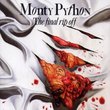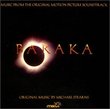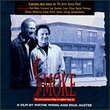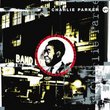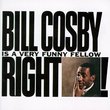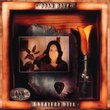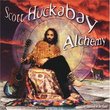| All Artists: Christoph Willibald Gluck, Les Musiciens du Louvre, Richard Croft, Mireille Delunsch, Marion Harousseau, Marc Minkowski, Sébastien Rouland, Jory Vinikour Title: Gluck - Orphée et Eurydice Members Wishing: 0 Total Copies: 0 Label: Archiv Prod Import Release Date: 5/11/2004 Album Type: Import Genres: Special Interest, Classical Styles: Opera & Classical Vocal, Historical Periods, Baroque (c.1600-1750), Classical (c.1770-1830) Number of Discs: 2 SwapaCD Credits: 2 UPCs: 028947158226, 0028947158226 |
Search - Christoph Willibald Gluck, Les Musiciens du Louvre, Richard Croft :: Gluck - Orphée et Eurydice
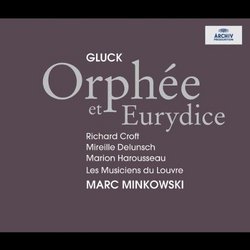 | Christoph Willibald Gluck, Les Musiciens du Louvre, Richard Croft Gluck - Orphée et Eurydice Genres: Special Interest, Classical |
Larger Image |
CD DetailsSimilarly Requested CDs
|
CD ReviewsAt last! Charles Richards | Los Angeles, CA | 05/17/2004 (5 out of 5 stars) "Gluck's "Paris version" of his most well-known work has been much maligned. Most mavens of "early music" and baroque opera (including Gardiner, Jacobs, et. al.) have a definitite preference for the original, Vienna version (with reason), and when the French version is performed at all it is usually the Berlioz revision that we hear, which is quite different from Gluck's "original". I can understand the gripes of those who don't care for the Paris version: too much filler, etc. But there are some extremely pleasent additions as well: a new aria for Amor in the first act, a lovely new aria for Eurydice in the second (hear sung instead by an "ombre heureuse"), a trio for Amor, Orphee and Eurydice in the third act (borrowed from "Paride ed Ellena"), the Dance of the Furies,Orphee's bravura aria (the authenticity of which was doubted until recently), and a longer version of the famous Dance of the Blessed Spirits. Not all this music is unknown to the general opera-goer, it was all included in the Berlioz version, an Italian translation of which has been the basis of most modern productions up until recently. But it is a joy to hear them in the original French, using Gluck's original orchestration. To my knowledge there have been only two other recordings of the Paris version on disc, both now out-of-print, and this is certainly the first recording on period instruments. And the recording does not dissapoint, not by a long shot. Minkowsky has a sure way with Gluck, as his previous Gluck recordings have proven, and he is in firm control. His tempi are always perfect, and the sound of his "Musiciens de Louvre" exquisite. As the French taste did not care for castrati, Gluck re-wrote the part of Orphee (a castrato in the Vienna version) for a tenor in the Paris version. But this is not a role that any tenor can sing, it was written for an "haut contre", a peculiarly French type of high tenor, for which most heroic roles in French baroque operas were written. This kind of voice has only been ressurected recently, with the rise of interest in French baroque opera. Richard Croft is perfectly cast, and handles the high tessitura of the part adeptly, never seeming to have any trouble, even in the highly criticized "bravura aria" at the end of the first act which, in my memory, has taxed the vocal power of every tenor who has attempted it before (it's usually sung in Berlioz' version, which was re-written for mezzo-soprano). The rest of the cast sound as fresh and aptly prepared as Croft. Mireille Delunsch makes a deliciously naive Eurydice. One only regrets that she does not sing her aria in the second act; although one can agree with Minkowski's reasoning that the aria is hardly in character, and conflicts with the Eurydice we see in the third act, the change here is hardly authentic. All-in-all a much needed and highly welcome release. Although one may agree with the majority that the earlier Vienna version is purer and less cluttered than the Paris, it is fascinating to hear Gluck's changes to accomodate French taste, and the gains made are greatly worth it." The Third Z. Yang | Hockessin, DE USA | 06/19/2004 (3 out of 5 stars) "There might be a saving grace in the fact that Gluck's 1774 Paris version "Orphe et Eurydice" has been performed rarely in recent history. The first tenor Orphe release was a studio recording in 1956, with Orphe sung by French-Canadian tenor Leopold Simoneau. In 1993 The Australian Opera staged Stefanos Lazaridis' production of the 1774 version, featuring tenor David Hobson as Orphe (original keys, modern pitch). About ten years later, we now have another tenor tackling the demanding role. Compared to his 1762 Vienna "Orfeo ed Euridice", Gluck's 1774 Paris version, with a libretto by Pierre-Louis Moline, had further realized his reform opera concept by these additions: a fuller structure of three acts with more ballet numbers to suit the Parisians' taste at the time; Eurydice's beautiful aria, "Cet asile aimable et tranquille"; the famous flute solo of the Elysian Fields; the trio "Tendre amour" to give the opera a joyful, better-structured conclusion, etc., and above all, he gave Orphe to a high tenor. This is a demanding role on many counts, the thrilling high tessitura being best known, and of course, there is also the lion's share in the vocal weight, as well as the complexity of the character's emotional path. Displaying the music on period instruments, this recording is significant in restoring the music style of the period with authenticity. Minkowski lead Les Musiciens du Louvre with a modern approach of faster tempi - some arrangements even give a feeling of haste - in striving for ardor and energy. But compared to other modern renditions, the period instruments lack bite, and for that matter, feel insufficient for the dramatic effectiveness. Presumably, tuning the pitch to A403 was to fit the tenor's vocal range, but unfortunately it also marred Orphe's high tessitura. Richard Croft was attuned well with the overall musical atmosphere, but showed some inconsistency and rather strained top. His effort in singing Orphe's bravura aria "L'espoir renat dans mon me" would be more admirable had it not ended with more cadenza. Orphe's beautiful aria in Act II, "Quel nouveau ciel pare ces lieux", was perfunctorily executed. More than once, I wish Croft had kept Orphe's lamentation to a more profound level. Returned to life in her role of Eurydice, Mireille Delunsch added more life to Act III. Her elegant vocals and expressiveness made my listening more enjoyable. Chur des Muiciens du Louvre produced a rich layer of sound as both the angry Furies and the Blessed Spirits. In the end, the opera is really Orphe's show and a tenor's tour de force. I applaud any artist who is willing to tackle the tenor Orphe on a full score." Now there are three . . . . Charles Richards | 06/17/2004 (3 out of 5 stars) "With the tardy arrival of this CD, there are now three interpretations of Gluck's 1774 Paris revision of Orphée et Eurydice to be had; the legendary 1956 studio recording by Léopold Simoneau is readily obtainable (Philips Duo series 468 537-2, or try Amazon.ca), and The Australian Opera's highly-praised 1993 production (with David Hobson singing the Act I ariette) has long been available in Australia in PAL VHS format and will be released on DVD in Europe later this year.Being happily familiar with these two performances, I looked forward with some interest to the latest offering, despite having read a less than enthusiastic critique of the 2002 Poissy (France) concert which provided the recording.
The major excuse for Gluck's tenor version of "Orphée et Eurydice" not being heard more often is that due to the rarity of haute-contre tenors the very high tessitura required for the leading role has become 'unsingable', particularly at the present-day Standard pitch of A440, so it would be predictable - for the sake of authenticity - to hear this beautiful work performed at Baroque pitch (A415). However, it's a great pity Marc Minkowski decided it would sound even better at A403 - halfway to the Classical French pitch of A392 - which has lowered Orphée's notorious range to a level which most tenors would now find acceptable! As performed on period instruments, the result is a mournful museum piece. Due to this radical pitch adjustment Richard Croft tends to sound nearer a baritone (think Fischer-Dieskau's Orfeo) than a tenor, although that may have been due, in part, to the cold he was said to be suffering from at the time of the concert, which did nothing to help his diction either, because he was often hard to understand. His singing of the bravura ariette 'L'espoir renaît dans mon âme' at the end of Act I (omitted by Simoneau and Gedda in their recordings) was tidy but unspectacular, with a perfunctary cadenza hardly likely to 'bring the house down', contrary to Gluck's original intentions (according to Berlioz). The Act II arias were so lacking in passion the Furies - far from being enchanted by his singing - probably gave in to Orphée out of boredom! In fact, except for the well-known and lively Dance of the Furies, the whole of Act II is pretty slow, with the flute solo in the Elyssium Fields having a particularly somnolent effect!Apart from L'Amour's appearance in Act I, the sopranos make no real contribution to the action until Act III, and by then the vocal contrast to Orphée is more than welcome. However, having a teenager sing the part of L'Amour was not particularly successful - Marion Harousseau may have had a suitably youthful voice for the role of the child-god, but her inexperience was demonstrated by her lack of dramatic conviction. Having lost her Act II aria 'Cet asile aimable et tranquille' to A Happy Shade, sung by Claire Delgado-Boge, Mireille Delunsch (Eurydice) had to make the most of her chances in Act III, and did so in the duet and aria, although the trios were less successful for all.Minkowski's tempi are erratic - veering between rushed recits and arias (where was the fire?) and soporific choruses (and arias), while the Overture, and the ballets which conclude the opera are unsuitably rapid - there is nothing stately about the Menuet, which sounds more like the Gavotte should have but didn't, and the closing Chaconne might more suitably be described as a musical 100-metre sprint!So, sadly, this much-needed addition to recordings of the neglected 1774 Orphée is a real disappointment, and it would be interesting to see whether William Christie - who seems to have a way with Gluck - could do better, given the chance. There's plenty of room for another interpretation, and no shortage of suitable tenors when one thinks of Messrs. Agnew, Ainslie, Padmore, etc." |

